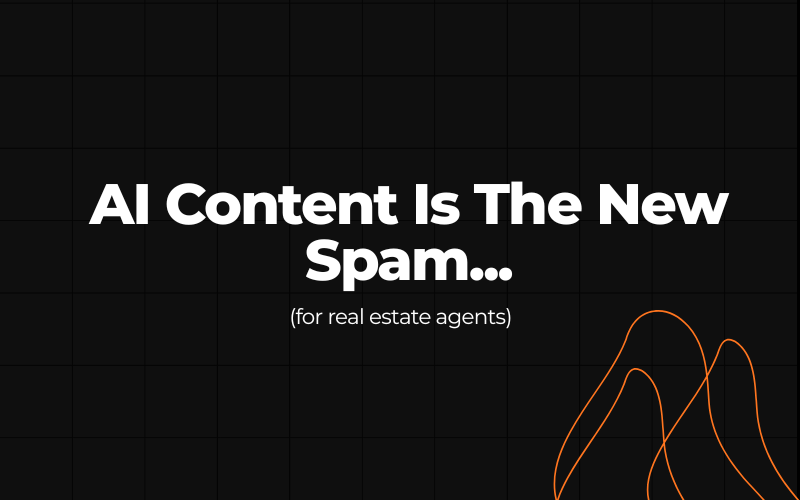AI Content Is the New Spam: The Visibility Gap No One in Real Estate Is Talking About


When ChatGPT launched, every agent with a laptop suddenly became a content creator. Blog posts, market updates, “Top 10 Reasons to Move to X” pieces—AI could churn them out in seconds. Fast-forward to 2025, and most of that material is invisible.
It isn’t ranking, it isn’t being cited by large language models, and it isn’t generating leads.
The problem isn’t AI itself. It’s that agents are producing content with no identity attached.
For the last decade, SEO rewarded consistency and keywords. Now the signal has flipped. Google’s Search Generative Experience and AI Overviews no longer pull from anonymous articles—they pull from entities they recognize: people, teams, brokerages, and brands with a digital footprint that can be verified across the web.
That means the average AI-generated post, no matter how polished, looks like static. It carries no authorship, no location context, and no relational ties to the person who wrote it. To an algorithm, it’s just one more cloned paragraph floating in space.
When an AI model answers “Who’s the best agent in Scottsdale?” it isn’t guessing—it’s triangulating. It looks for consistent name-address-phone (NAP) data, structured schema, press mentions, reviews, and social profiles that confirm, yes, this person exists and has authority here.
If your name, brokerage, and specialties don’t appear together in those verified sources, you could publish 100 blogs a month and still never be surfaced. Visibility now flows through entity coherence, not content velocity.
Think of your online presence like a verified passport. Every stamp reinforces who you are and where you operate. This is how you’ll make it machine-readable:
Here’s where many real estate marketing companies are leading agents astray. They promise “AI-powered content packages” and flood client sites with potentially hundreds of SEO-optimized pages—but none of the five elements above are in place. No structured schema, no entity linking, no review signals, no authorship, no consistency.
They assume quantity equals visibility when, in reality, they’re diluting their domain with unverified content that algorithms actively ignore.
These companies aren’t optimizing for AI discovery—they’re just filling space. And, unfortunately for them, these agents are being sold a bad bill of goods that neither they nor their marketing provider realizes yet.
Agents chasing content volume are solving the wrong problem. The future of visibility belongs to professionals who show up as themselves in structured, verifiable ways.
AI won’t recommend you until it can verify you—and it can’t verify you until your digital identity is consistent everywhere it looks.
So yes, AI content is the new spam.
But for agents who pair AI-optimized content with transparent identity, it’s also the biggest opportunity since the first IDX feed hit the web. The winners won’t be those who publish the most words; they’ll be the ones the machines can actually recognize.